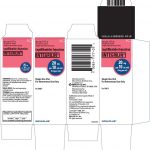
Contents
Is Drinking Hot Tea Every Day Beneficial?
Tea is the second most popular beverage in the world, after water. It has soothing and stress-relieving properties, but avoid consuming it piping hot.
Can’t imagine a day without a cup of hot tea? You’re not alone. Globally, 3 billion cups of tea are consumed daily, making it one of the most popular beverages worldwide.
While both cold and hot tea can be enjoyed, hot tea is particularly known for its soothing and stress-relieving properties. However, drinking tea that is too hot can have adverse effects, such as an increased risk of burns and, in the long term, certain types of cancers.
To enjoy the benefits of hot tea, let it cool for a few minutes before drinking. This will allow you to savor the taste while minimizing potential risks.
Teas can be classified into two types: traditional tea and herbal tea. Traditional teas, also called true teas, are made by steeping the leaves of the Camellia sinensis plant in hot or boiling water. This tea plant is native to China and India.
There are five common types of traditional teas, all containing varying amounts of caffeine:
- White tea: Made from young tea leaves with silvery-white hair that are quickly dried. This is the least processed type of tea.
- Black tea: Tea leaves that are dried and fully oxidized, giving them a distinct color and rich taste.
- Green tea: Processed using heat to retain the green color. Japanese green tea leaves are usually steamed, while Chinese green tea leaves are often roasted or pan-fired.
- Oolong tea: Made from sun-withered and partially oxidized tea leaves.
- Pu-erh tea: Contains parched, fermented, and aged tea leaves.
Tisanes, also known as herbal teas, are not technically teas as they do not come from the Camellia plant and do not contain caffeine. Instead, they are made from a blend of spices, dried herbs, fruits, roots, flowers, seeds, leaves, bark, buds, and other plant parts. Popular herbal teas include fennel, peppermint, sage, chamomile, lemon, nettle, rosemary, lavender, ginger, and rooibos.
What Nutrients Does Hot Tea Contain?
When brewing hot tea, you extract nutrients from the leaves. However, steeping dilutes the nutritional content significantly. As a result, most teas have minimal carbohydrates, fats, calories, proteins, and fibers, unless you add milk or sweeteners.
Despite the low macronutrient content, teas are considered nourishing due to the presence of various health-boosting compounds, including:
- Vitamins
- Minerals
- Amino acids (like L-theanine)
- Lignans
- Carotenoids
- Polyphenols (catechins, flavonoids, theaflavins)
- Alkaloids (caffeine, theobromine, theophylline)
These compounds possess powerful antioxidant properties, which help combat free radical damage, oxidative stress, and inflammation in the body. They also contribute to the unique aroma and flavor of different teas.
What Are the Health Benefits of Hot Tea?
Studies suggest that drinking 2 to 3 cups of tea, especially green tea, per day can lower the risk of heart disease and death. Regular tea consumption is also associated with a reduced risk of type 2 diabetes, hypertension, and brain disorders.
Drinking hot tea has additional positive effects on health:
Improved Mood and Emotional Health: Hot tea can induce a sense of relaxation. Chemicals like polyphenols, caffeine, and L-theanine found in traditional teas regulate mood-boosting hormones like dopamine. The process of making and holding a hot beverage can also have positive effects on mood and induce pleasant feelings.
Weight Management: Research suggests that hot tea consumption can help reduce body fat. Regular hot tea drinkers tend to have lower body mass index (BMI) and waist girth. Bioactive compounds like polyphenols in tea may have metabolism-boosting effects. Be cautious of teas marketed as "weight-loss solutions" as they may contain harmful ingredients.
Reduced Risk of Glaucoma: Several studies have linked hot tea intake to a lower risk of glaucoma, which damages the optic nerves and can lead to blindness. One study found that drinking one or more cups of hot tea daily reduced the risk of glaucoma by 74%. Flavonoids in tea are believed to have neuroprotective properties.
QUESTION
Are There Side Effects of Drinking Hot Tea?
While tea itself is not associated with serious health risks, drinking very hot tea can have severe side effects:
Increased Risk of Esophageal Cancer: Regularly consuming very hot tea significantly raises the risk of esophageal cancer, particularly when combined with smoking or frequent alcohol consumption. Temperatures above 140-149°F can damage the cells lining the esophagus, making them susceptible to cancer-causing chemicals. Green and black teas have a higher risk when consumed at elevated temperatures.
Higher Risk of Burns: Preparing hot tea usually involves brewing the leaves at temperatures around 194°F. This can cause severe burns in the mouth or on the skin. Older adults and young children are at a higher risk due to their thinner skin. Always exercise caution while brewing and consuming hot tea.
What Is the Best Way to Enjoy Hot Tea?
Different types of hot teas require specific preparation methods. Oolong and black teas are typically steeped in boiling water (210°F) for about five minutes. Green teas are steeped at 180°F for 4 to 15 minutes. Regardless of the temperature, it is best to let the tea cool below 140°F before drinking.
Adding milk, cream, or sugar may lower the tea’s temperature, but it can also affect its nutritional content. Avoid excessive additives. If you prefer sweetness, try a dash of cinnamon or vanilla or opt for fruit-flavored herbal teas that provide natural sweetness.
Sources:
<ul>
<li>Annals of Medicine: "Tea intake and cardiovascular disease: an umbrella review."</li>
<li>The British Journal of Nutrition: "Tea consumption and risk of type 2 diabetes: a dose-response meta-analysis of cohort studies."</li>
<li>British Journal of Ophthalmology: "Frequency of a diagnosis of glaucoma in individuals who consume coffee, tea and/or soft drinks."</li>
<li>European Journal of Cancer Prevention: "Tea drinking and the risk of esophageal cancer: focus on tea type and drinking temperature."</li>
<li>Graefe’s Archive for Clinical and Experimental Ophthalmology: "The effect of flavonoids on visual function in patients with glaucoma or ocular hypertension: a systematic review and meta-analysis."</li>
<li>Harvard T.H. Chan School of Public Health: "Tea."</li>
<li>The International Institute for Sustainable Development: "Global Market Report: Tea."</li>
<li>Journal of Food Science: "A Review of Hot Beverage Temperatures-Satisfying Consumer Preference and Safety."</li>
<li>Molecular Nutrition & Food Research: "Mechanisms of body weight reduction and metabolic syndrome alleviation by tea."</li>
<li>Nutrition and Cancer: "Hot Tea Drinking and the Risk of Esophageal Cancer: A Systematic Review and Meta-Analysis."</li>
<li>Oregon State University: "Tea."</li>
<li>Penn Medicine: "The Hidden Health Benefits of Tea."</li>
<li>Phytomedicine: International Journal of Phytotherapy and Phytopharmacology: "Green tea effects on cognition, mood and human brain function: A systematic review."</li>
<li>Skin Research & Technology: "Age and skin structure and function, a quantitative approach (I): blood flow, pH, thickness, and ultrasound echogenicity."</li>
<li>Skin Research & Technology: "Age and skin structure and function, a quantitative approach (I): blood flow, pH, thickness, and ultrasound echogenicity."</li>
</ul>


